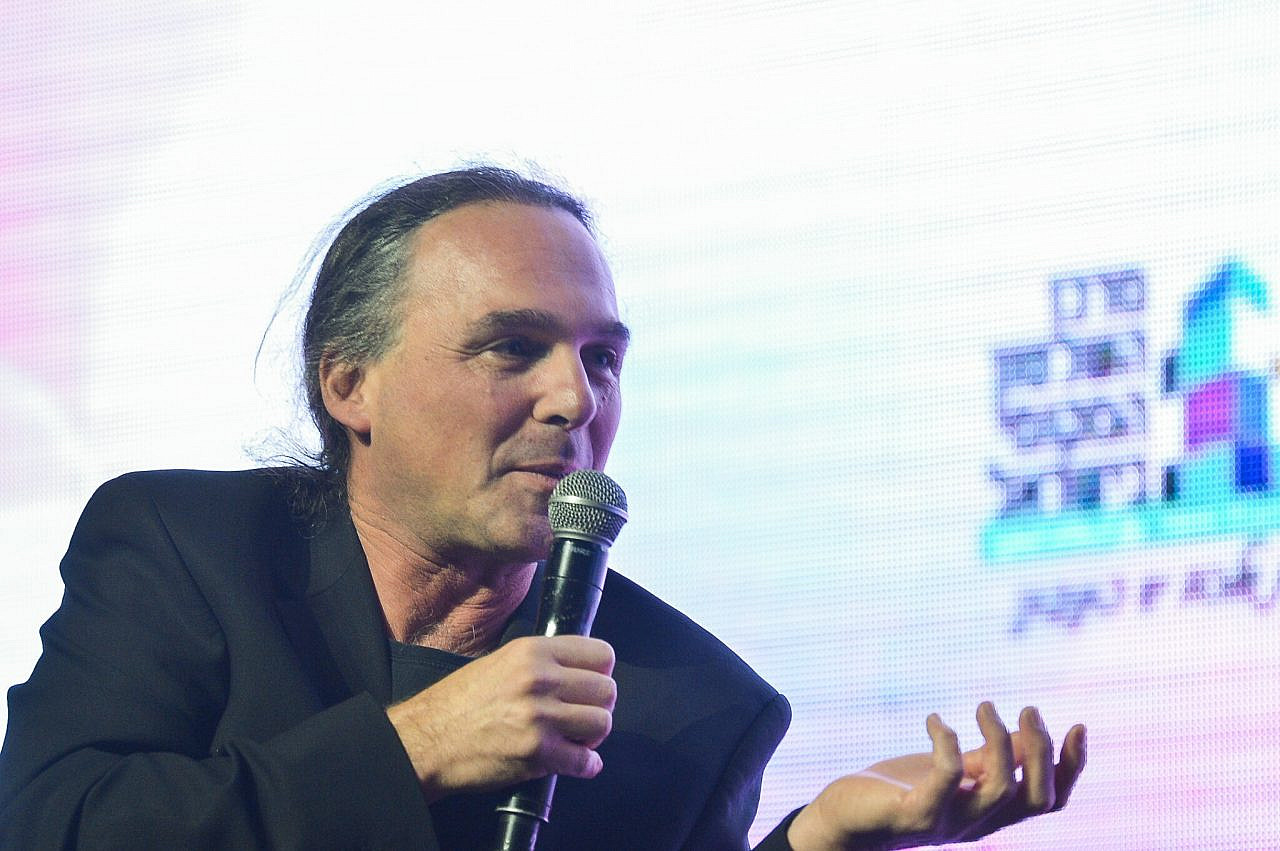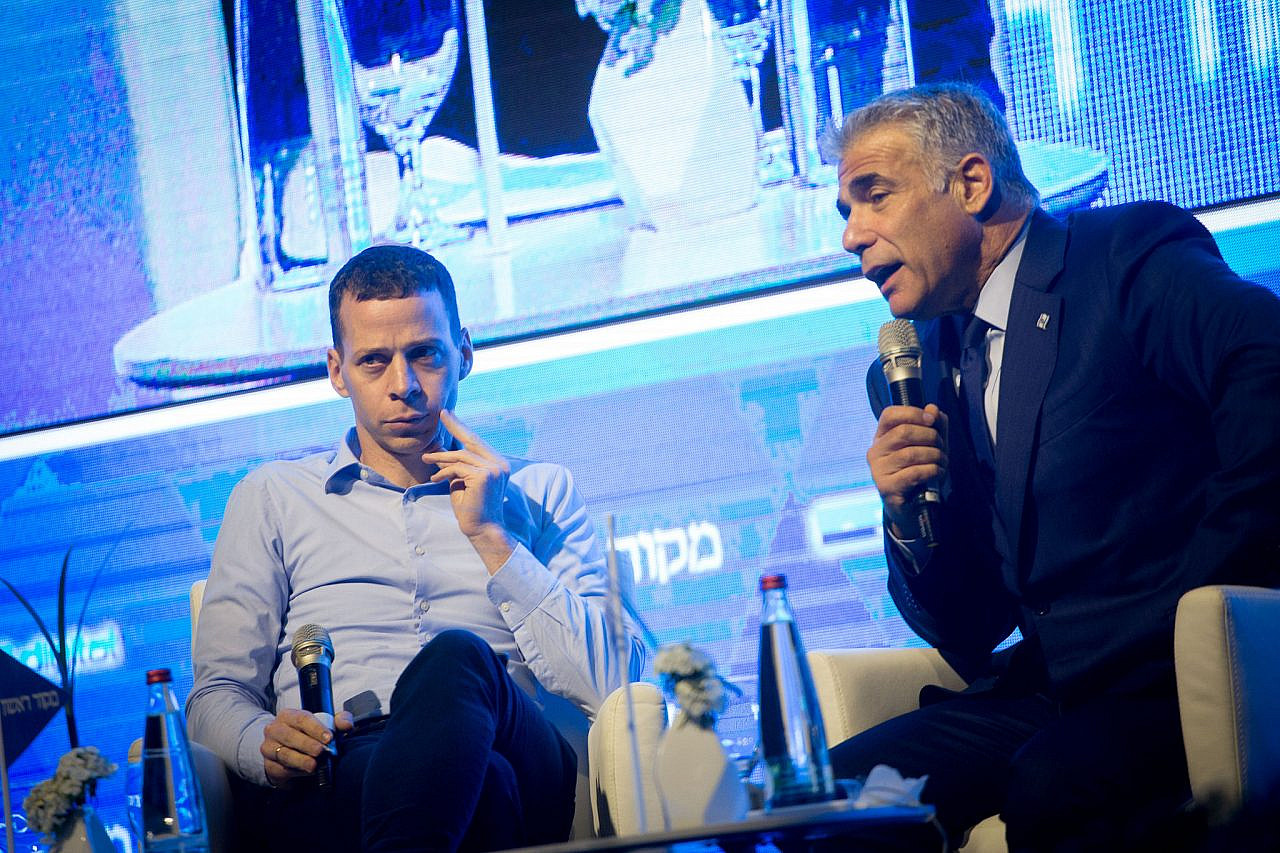The fresh revelations regarding former Prime Minister Benjamin Netanyahu’s iron grip on the Israeli media, and his efforts to ensure positive press coverage, have served as a timely reminder of the maneuvering that helped him become Israel’s longest-serving leader.
Finally ousted from office earlier this year, as premier Netanyahu was a gifted campaigner and cynical populist who recognized and exploited every possible fissure in Israeli society in order to obtain, and then retain, power. His unique ability and willingness to frame the Israeli condition as one of never-ending conflict, obliging us to “forever live by the sword,” created a destructive legacy that continues to cast a long shadow over Israel’s political discourse today — especially when it comes to the media.
From the very beginning, Netanyahu understood the map of the Israeli body politic, taking aim at the targets he felt would advance his grip on power and pave his way to impunity.
Early on in his 12-year reign, his main target appeared to be progressive civil society organizations. He cast the New Israel Fund (NIF), for example, as a satanic specter, elevating it in the minds of Israelis to an all-powerful, anti-Israel monster. As well as being a tool to silence and delegitimize progressive civil society work, Netanyahu’s targeting of the NIF allowed him to dismiss opposition to his policies simply by highlighting a critic’s association (real or imagined) with the organization.
Perhaps more significant, though, was his targeting of Israel’s media. Netanyahu sought to convince the Israeli public, and in particular his supporters, that the national media consists of left-wing propaganda outlets that perpetuate the oppression they experience as religious or Mizrahi Jews. As with much propaganda, a kernel of truth was distorted in order to plant a field of resentment, distrust, and blatant lies in the minds of many.

These attacks hit their mark: under pressure to prove their patriotic credentials, and financially starved to boot, mainstream media outlets resorted to lowbrow reporting and sloppy journalism while giving disproportionate airtime to non-newsworthy items that advanced Netanyahu’s right-wing agenda. Serious inquiry became a rare commodity that journalists struggled to publish.
Netanyahu’s mouthpieces
Nowhere is this clearer today than with Channel 20 (which is currently being rebranded into the more accessible Channel 14). Established in 2014 as a public broadcast channel, it was contractually obligated to provide “traditional” Jewish content. Following a legal battle, however, the channel was permitted to begin broadcasting news alongside its traditional content in 2018. Yet Channel 20’s news broadcasters and their content served to unabashedly boost Netanyahu — and continue to do so even now, under a new government. The channel suffers no consequences for violating its legal obligation to provide less news and more Jewish content, or for directing abusive, unbridled slander at anyone who challenges Netanyahu.
So extreme has Channel 20’s content become in recent months that the station has twice been forced to backpedal. First, when a rocket fired from Gaza in May landed in a football field in an Arab town in northern Israel, the reporter Kobi Finkler lamented that it “unfortunately did not lead to mass deaths there.” Finkler was fired following these remarks. Then, after the sudden death in August of MK Said al-Harumi of Ra’am, a Palestinian party in the current coalition, another Channel 20 reporter, Jonathan Yifrach, wrote: “In the loss of the wicked we rejoice — MK Said al-Harumi, the terrorism supporter from Ra’am.” The channel subsequently issued an apology.
Another outlet that has been unequivocal in its support for Netanyahu from its inception in 2007 is the free daily newspaper, Yisrael Hayom (Israel Today), which boasts readership numbers higher than any other news publication in the country. The enterprise was financed at a large loss by Jewish-American gambling mogul Sheldon Adelson, who passed away earlier this year (his widow, Miriam Adelson, has since taken over), putting yet another nail in the coffin of the rest of the Israeli print media, which struggles to compete. The paper highlighted Netanyahu’s achievements while downplaying his legal entanglements, and hired only those willing to toe the line of adulation for the former prime minister.

The examples of Channel 20 and Yisrael Hayom are extreme, but they are not outliers. Netanyahu’s success in radicalizing Israeli society, diverting its attention and inflaming existing tensions to the benefit of his government bore further fruit in the form of individual political commentators who appear regularly on primetime TV news channels. Two such commentators who warrant further discussion here are Avishay Ben Haim and Amit Segal.
Like something out of a populist ‘how to’ manual
Ben Haim is a journalist and academic who has written popular books on the Haredi political and rabbinical leadership. The political commentary for which he has become a household name, however, makes cynical use of the ongoing socioeconomic disparities between Ashkenazi and Mizrahi Jews, a festering wound in Israel’s social fabric. Rather than advocating to correct past failings, Ben Haim has exploited this inequality for one simple reason: to generate support for the Netanyahu regime. It should be noted, though, that the continuing refusal of left-wing parties to embrace an agenda of distributive justice that would help to ameliorate these socioeconomic disparities has made Ben Haim’s task easier than it otherwise might have been.
Israel, in Ben Haim’s mind, is divided between upper-class, secular Ashkenazim (“First Israel”) and lower-class, traditional and religious Mizrahim (“Second Israel”). No amount of pushback will convince him to adopt a more nuanced approach that takes into account other social groups, such as those hailing from the former Soviet Union, or the prevalence of cross-communal marriage in Israeli society. He is also unrelenting in his portrayal of Netanyahu as Israel’s leader by divine intervention, regardless of political realities or nefarious actions. Yet Ben Haim’s manner is always pleasant; he is warm and intelligent when left unchallenged and, as such, he is considered a legitimate voice in many liberal circles.
Ben Haim uses Twitter, the medium of choice among most of Israel’s politicians and journalists, to spread his ideas, which have become increasingly extreme in tandem with Netanyahu’s political demise. One of his recent tweets reads like something out of a populist “how to” manual, claiming that the current Israeli government “was not elected by the public” and that voters had been duped by current Prime Minister Naftali Bennett and Deputy Prime Minister Gideon Saar, leading to an “exclusionary government of the First Israel.”
This is a recurring theme among Ben Haim’s pronouncements: any government not headed by Netanyahu is illegitimate. Ben Haim, of whom I admit I used to be fond for the way he highlights social injustices done to Israelis of Mizrahi descent, has long ago dropped the façade of democracy. He waxes poetic about the beauty of the traditional Mizrahi Jew, but remains completely immersed in the belief that Netanyahu and the state are a single, inseparable, entity.
Of course, he will argue that he is indeed democratic and that he is motivated by the pursuit of justice for the lower classes — whom Netanyahu supposedly represents exclusively and totally. But upon closer investigation, it is blatantly clear that, unlike the arguments for social justice made by many other Mizrahi activists, Ben Haim is capitalizing on this very real issue in order to generate support for a populist leader who is motivated solely by his own selfish interests.

It’s also easy to recognize Ben Haim’s proclivity for Jewish supremacy. For him, Netanyahu’s innate legitimacy as ruler stems from the fact that most Jews prefer him. You would be hard pressed to find any reference to Palestinian citizens of Israel among Ben Haim’s many tweets, articles, op-eds and TV appearances. They simply do not exist for him, because to acknowledge their existence would be to upset his well-designed apple cart and expose the rotten supremacism just beneath the surface.
Were Ben Haim actually promoting critical theory as social praxis, he would not simply ignore outright any group other than Mizrahim. Rather, he would be forced to acknowledge other claims, Jewish and Palestinian. However, his end goal is not a more fair and equal Israel but rather to reinstate and reinforce Netanyahu — “King of Israel,” leader of the Jewish masses, the choice of the lower Mizrahi classes in Israel and, therefore, the only legitimate choice.
The settler lobby — on primetime television
Amit Segal, meanwhile, is the political correspondent for Channel 12, which is arguably the most influential position on the most widely-viewed news network in Israel. Segal in many ways had a simpler task than Ben Haim: he needed only to fuel the deep-seated fear and loathing that so many Jewish Israelis have for the Palestinians — in Israel and the occupied territories alike — to play into the hands of the right-wing government. He is not a populist; his support for Netayahu was instrumental, as Netanyahu was (and is) an ally to the settlement project — not because he built more of them, but rather because he was deeply committed to maintaining the status quo in the occupied territories.
For Segal, who is ideologically settler-minded (though he actually lives in central Jerusalem), Netanyahu’s policy was ideal. But now that Netanyahu is out of power, Segal has moved on to supporting the new government, which seems similarly committed to the status quo in the occupied West Bank — albeit now as the median position among the different coalition parties. Moreover, although Segal is a right-wing nationalist, he is far from the fanatical religious archetype represented by the likes of Bezalel Smotrich and his opposition Religious Zionism party. Segal is part of a significant elite in the national-religious arena which shares a great deal with the supposedly moderate, well-heeled part of society represented by Yair Lapid and his “centrist” Yesh Atid party.
When you take Palestinians out of the equation, which both groups are prone to do, there are more similarities than differences between them. Both are deeply Zionist, economically and socially liberal, well educated, and politically savvy. Ironically, these similarities — and the higher socioeconomic status that they share — fit right in with Ben Hayim’s theory of “First Israel” versus “Second Israel,’ now that both Yesh Atid and Yamina are leading the government Netanyahu has lost.
Many of Channel 12’s viewers belong to one of these elite groups and would not discern the subtleties in Segal’s commentary that betray his extreme-right agenda. In early November, for example, he tweeted about the need to investigate the police shooting of Ahuvia Sandak, an Israeli settler teen who was killed last December in a car crash as he was fleeing the police.
But a quick search of Segal’s Twitter feed reveals that he is totally silent when it comes to the police’s treatment of human rights activists on the other side of the political divide. Likewise, he had no such words of support for the protesters demanding justice for Iyad al-Hallaq, a Palestinian man with autism whom Israeli police officers murdered in the Old City of Jerusalem in May last year. (The officers have yet to be indicted.)

Further evidence of Segal’s sympathies can be found in his retweet of MK Itamar Ben-Gvir, who spoke at the memorial for the ultra-right former MK Meir Kahane earlier this month — a tweet that includes a picture of Ben-Gvir and Segal together with Segal’s newly published book on Israeli politics. And at the end of October, Segal retweeted a Channel 12 story seeking to depict Ra’am as terror supporters (Ra’am has since sued channel 12 for libel). Whereas Kahane was boycotted even by Israel’s right-wing media, his disciple Ben-Gvir is a media favorite. And what would have once put someone like Segal beyond the realm of legitimate public opinion in Israel is now par for the course.
Segal is careful; he has never made a statement that is so extreme as to warrant a significant mainstream backlash, such as those made by Channel 20’s Kobi Finkler and Jonathan Yifrach. But his pattern of sympathies — or lack thereof — can be discerned by a mindful political ear. His is not a case of support for an individual politician, but rather of a cause — a cause that his father Hagai Segal, publisher of the right-wing Makor Rishon paper, in the past espoused to the point of Jewish terrorism. Segal junior, however, has no need to resort to violence, for he has the full attention of the Israeli public at primetime on the country’s biggest news show.
The way back
For those firmly on the left, the Netanyahu reign was tricky and confusing. When the opposition looked like the centrist Lapid or the former military general Benny Gantz, it was easy to characterize the political debate in Israel as a case of “potayto, potahto.” But Netanyahu’s relentless attacks on the media, and his campaign to frame progressive civil society organizations as evil incarnate, left deep scars in the Israeli body politic and laid the building blocks for acts like Gantz’s recent delegitimization of Palestinian NGOs.
With the state budget passed, Netanyahu’s hopes of a swift return to power have been dashed. Between that and his corruption trial, we will likely see some severe attacks on the mainstream media — as flawed and as populist as it already is. Channel 20-turned-14 is still deeply in his pocket, but Yisrael Hayom, his raison d’etre, has made some moves towards supporting the Bennett-led government. This is not necessarily a harbinger of more balanced media but a reflection of the influence wielded by the wealthy on public opinion to serve their ends.
Much effort went into crushing Israel’s media into its current dilapidated state. It will take even more effort to bring it back to something that resembles serious journalism. In the meantime, the independent press has a pivotal role to play: challenging false reports, reminding Israelis of what goes on in their backyard, and foregrounding issues that mainstream media outlets are too frightened or lazy to tackle. Israeli society, though flawed and sometimes willfully blind, is better than Netanyahu. His removal from the scene was essential for any chance of progressing into a better era of Israeli politics and journalism.

